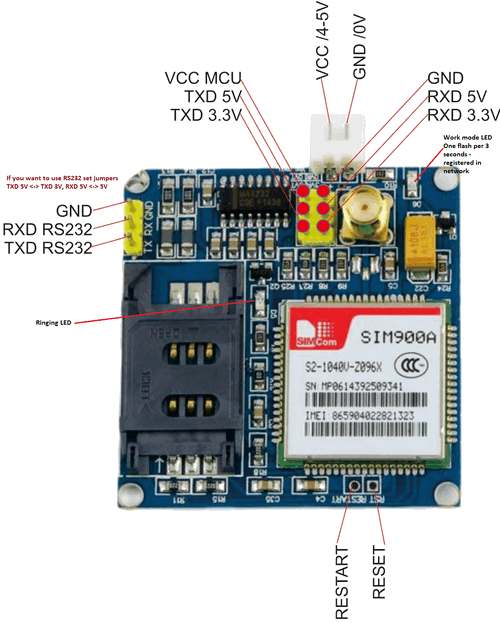ITead offers a new model of small one- and two-way switches. These devices are based on the modern and powerful CC2652P1F chip. This chip has a built-in amplifier and should provide excellent signal strength and connection range. But real applications show that is not true.
Analog input with ADS1115 in Python
Python has the pretty good library “WiringPi-Python“, but it depends on WiringPi2 for Raspberry Pi and cannot be installed automatically through pip. Here is a solution.
In my project I want to control a battery voltage and a charging state for my LiPo battery. Therefore I’ve added the ADS1115 board.
I’ve installed WiringPi2 for BPi and tried to read analog inputs through the gpio command line utility.
1 | $ gpio -x ads1115:200:0x48 aread 200 |
The main disadvantage of this method for me is the default analog reading settings: 128 samples per second and +/-4.096V range (my battery voltage is 4.2V). You cannot change these setting in the command line utility.
Sending SMS via MQTT. Strange? No, this is simple.
DHT-22 sensor on Banana Pi BPI-M2U
I need to connect the DHT22 temperature and humidity sensor to BPi. Obviously, the kernel does not include the corresponding kernel module, but this module exists in sequent releases.
I’ve found and tried this user-mode C code (dht22). It uses the WiringPi library and can be compiled on Banana Pi BPI-M2U.
1-wire on Banana Pi BPI-M2 Ultra
Banana Pi BPI-M2U has the Allwinner R40 chip. This chip does not include a hardware 1-wire interface. But we can implement this data exchange protocol at the software level using the bit bang method. The default Linux kernel (Raspbian Jiessie, 3.10.107) does not include the w1-gpio kernel module. I’ve tried to compile it, but it has many dependencies. I’ve found w1-gpio-cl. This is a Linux kernel-mode driver substitutes w1-gpio 1-wire bus master driver. Contrary to the standard driver, w1-gpio-cl doesn’t need many other kernel modules. Also you may configure this kernel module using command line parameters.
Cross-compilation for Banana Pi M2U
Using BPi for kernel (re)compilation is quite painful because it is very slow for this task. So I configured a virtual machine (VMWare in my case). Now, the kernel can be compiled in 50-80 seconds on my i7-4770. The configuration is easy if you read the following tutorial. I’ve tried several options before and selected this one.
Banana Pi M2 Ultra. My start.
Some time ago I’ve purchased RPi2 and built my first smart home server (powered by Pimatic). Everything is good with this solution but currently I need more:
- More memory.
- More CPU performance.
- Fast internal storage (eMMC preferable).
- Backup battery.
- All wireless interfaces (Wi-fi, Bluetooth).

